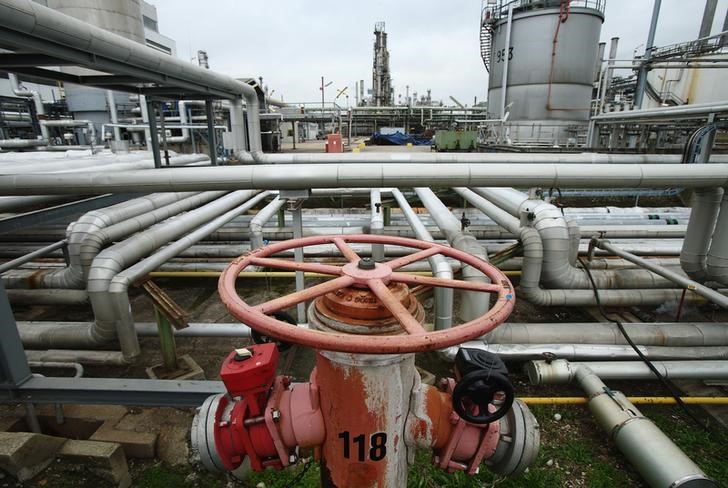Xia Yu, director at Summit Therapeutics, buys $9.9 million in shares
Investing.com--Oil prices rose sharply Monday after a group of top producers kept its output increase unchanged over the weekend, defying some expectations for a larger supply addition.
At 06:15 ET (10:15 GMT), Brent oil futures rose 3.3% to $64.83 a barrel and West Texas Intermediate crude futures gained 3.6% to $62.96 a barrel.
OPEC+ hikes output in July
The Organization of Petroleum Exporting Countries and allies, a group known as OPEC+, over the weekend agreed to increase output in July by the same amount it did in the past two months, hiking production by 411,000 barrels per day.
Fears of even more OPEC+ production had pressured oil prices for the past two weeks, especially amid persistent concerns over slowing demand due to global trade disruptions.
The cartel is now seeking to increase production to help offset the impact of lower oil prices, while also punishing overproducers.
And more is to come, if Goldman Sachs is to be believed.
The investment bank anticipates the oil group will implement a final 0.41 million barrels per day (mb/d) production increase in August, according to a note dated Sunday.
"Relatively tight spot oil fundamentals, beats in hard global activity data, and seasonal summer support to oil demand suggest that the expected demand slowdown is unlikely to be sharp enough to stop raising production when deciding on August production levels on July 6th," Goldman Sachs said in a note.
Ukraine launched major attack on Russia
Helping the crude price rise Monday was the news that Ukraine launched a large-scale drone attack on Russia over the weekend, retaliating against Russian aggression seen last week but further undermining upcoming ceasefire talks.
Separately, Bloomberg reported that there was a bipartisan push in U.S. Congress to impose more sanctions on Russia’s oil industry, aimed at further pressuring Russia into a ceasefire with Ukraine.
The new measures will be aimed at pressuring top buyers China and India from purchasing discounted Russian crude, and propose a 500% tariff on imports from countries that purchase Russian oil.
Such a move stands to severely crimp global oil supplies, given that China and India are major buyers of Russian oil, and will have to look to other sources for oil, potentially at higher prices.
"While President Trump appears to be increasingly frustrated with President Putin, he’s so far been reluctant to impose additional sanctions. Actions that successfully target Russian oil flows will change the outlook for the oil market drastically," said analysts at ING, in a note.
Ambar Warrick contributed to this article
